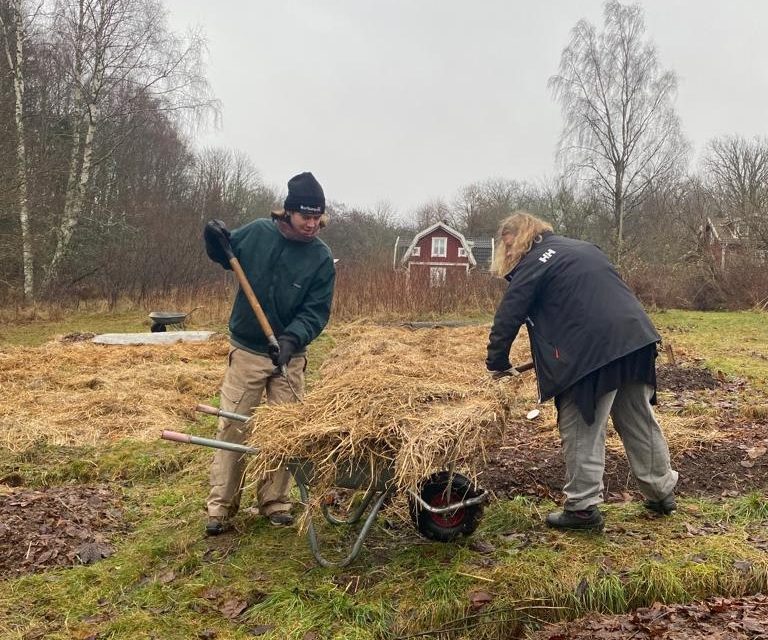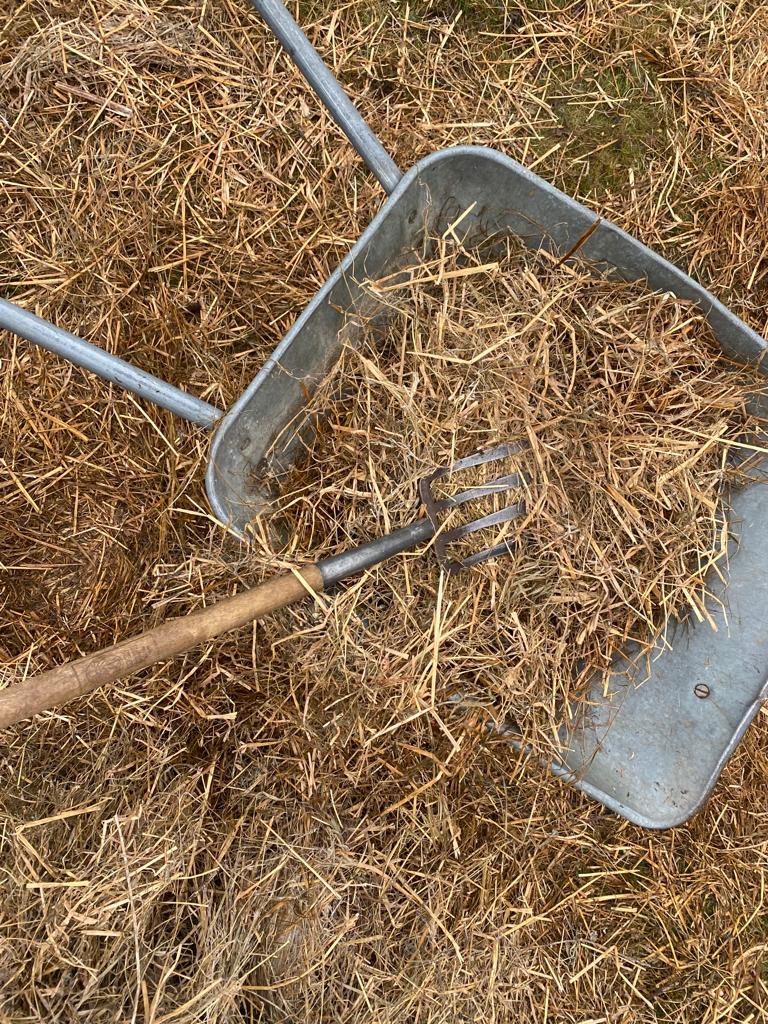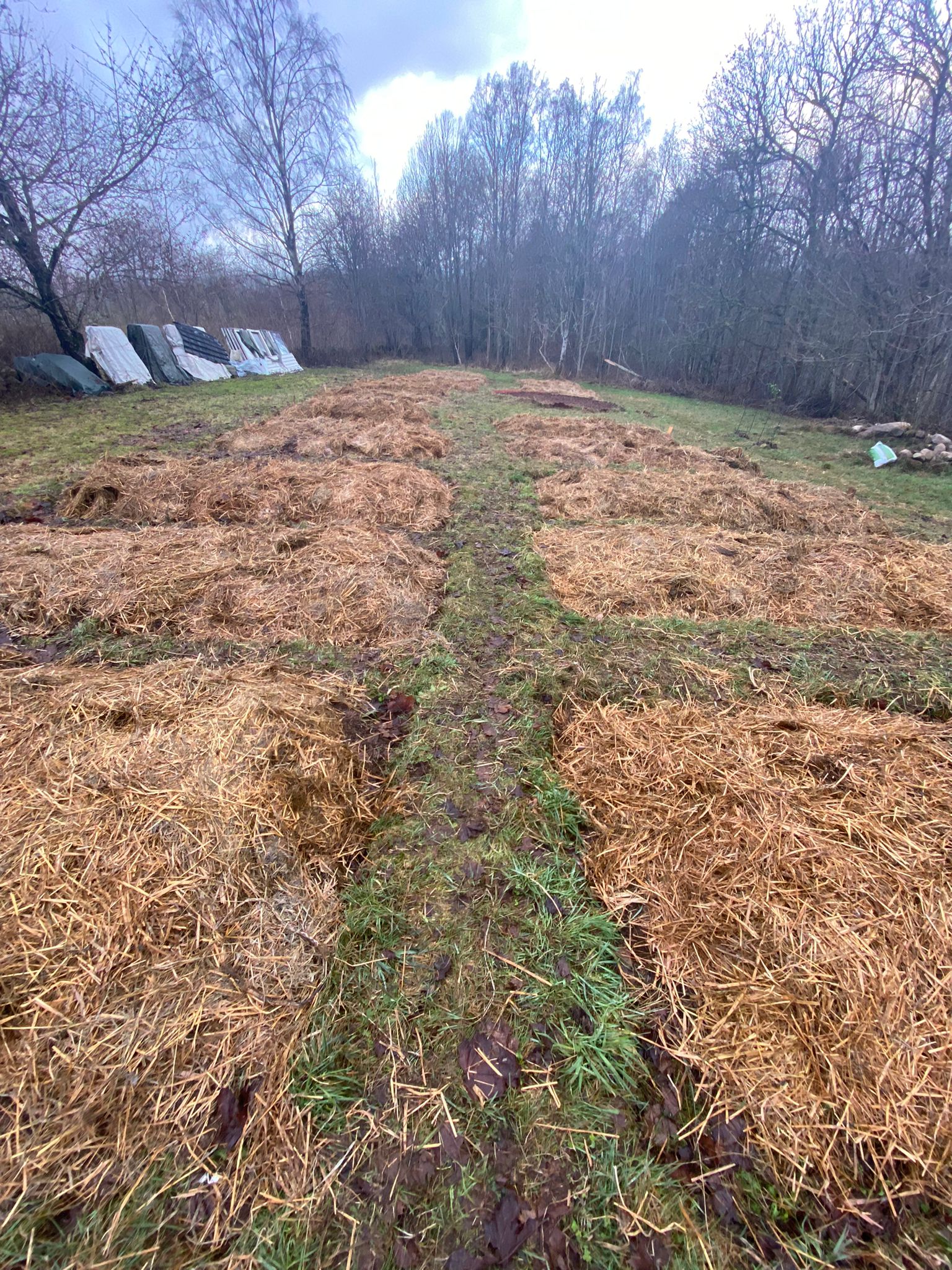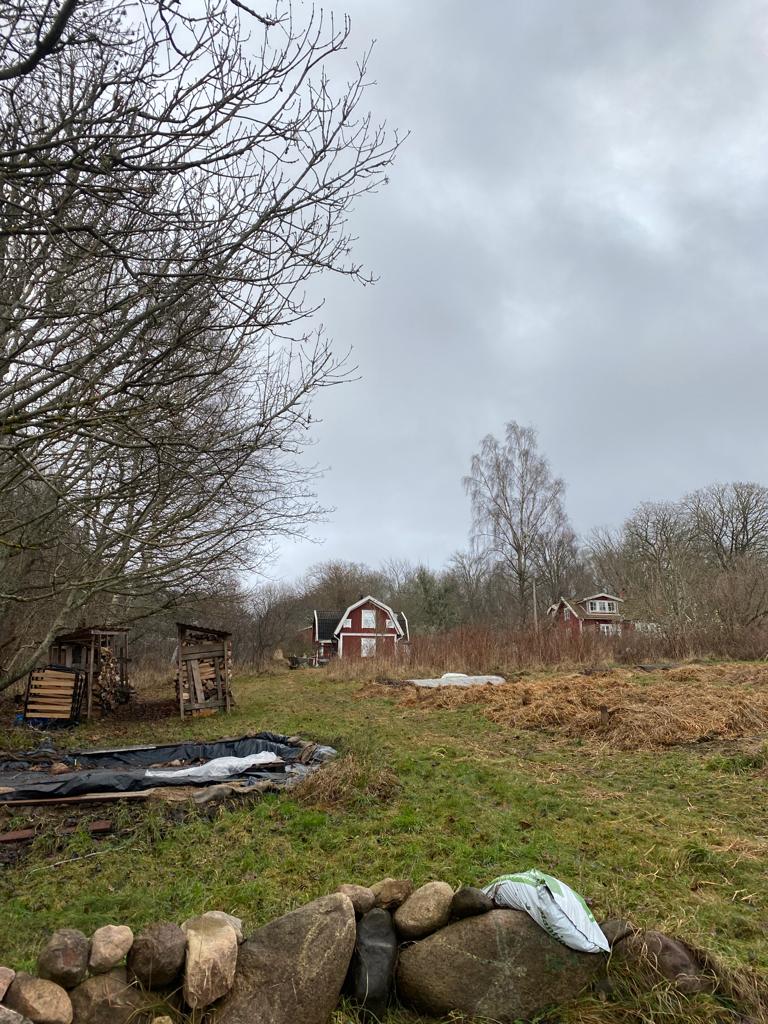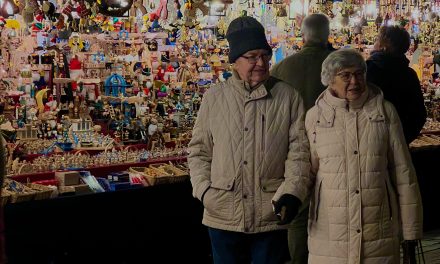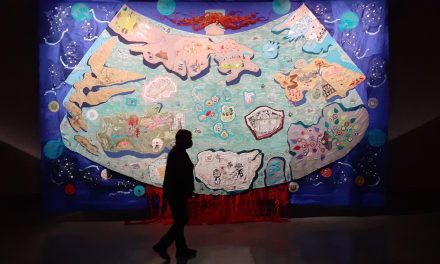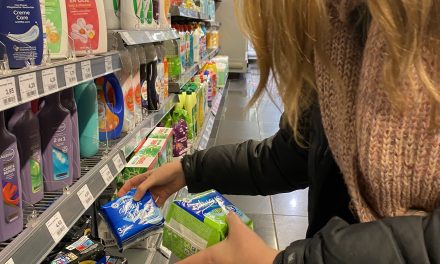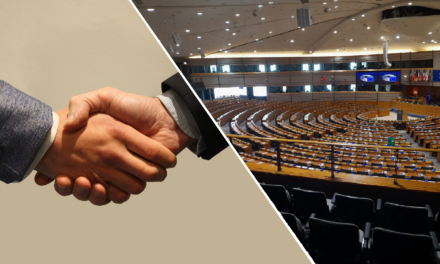Report from Lidaberg, near Skövde – southern Sweden.
Ett, två, tre!
The task of the day is to take the bale of straw to the garden and spread it over each of the 21 plots so that they will have a good winter. By covering the soil, not only will the worms not dig too deep in search of warmth, but they will also turn over the cultivable soil on the surface. But also the vegetable garden plots will not have any weeds blooming in the spring, providing virgin soil for the seeds.
Birgit, 68, has been hosting WWOOFers in her home for almost 10 years. “We can meet in a way that maybe I didn’t know before”. What is WWOOFing? A platform that connects travellers with farmers. It’s called “World Wide Opportunities on Organic Farms”. In exchange for their voluntary help, the travellers (known as “WWOOFers”) receive food and a pillow to lay their heads on.
Initiated in England in the 1970s, the movement now includes more than 130 countries around the world. The aim is to promote awareness of ecological farming practices and sustainable living. Each country runs its own platform locally, charging a yearly membership fee ranging from €25 for France to €32 for Sweden. As a WWOOFer, you have access to the contacts of the hosts in the country you have signed up for, and once you are there, there is no question of money. The currency of exchange is human relations.
So, as Rodrigo Rocha, coordinator of WWOOF Portugal, points out, “the good thing about WWOOFing is that you can do extremely professional things, but without the pressure of money. So the pressure is on quality instead of deadline, or profit.”
“The best way to learn is through each other”.
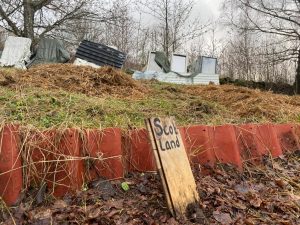
Birgit talks a lot about the different volunteers who come to WWOOFing at her place. One of them was a Michelin-starred chef from Scotland, who prepared delicacies for her from the contents of her freezer. In her vegetable garden, he created this bed of earth surrounded by red tiles to grow potatoes. As a tribute, this plot is named with a wooden sign: “Scotland”.
“I think at first I learned more from my WWOOFers than they did from me. Because they had already worked on several farms around the world, and could teach me the different techniques. And then there were those who had never done it before. So of course I taught them what I could. There are all profiles.
Is WWOOFing needed on a larger scale to help Sweden meet its environmental goals? The question arises in the run-up to the revision of the IPCC’s sixth report, which is due to be republished on 20 March 2023.
Sweden’s commitment to the environment is not new. It was the first country to establish an environmental protection agency in 1967: Naturvårdsverket. As a result of this project, 16 environmental objectives were defined to move towards a sustainable society.
“WWOOFing is necessary, yes,” says Daniela, a host in Sweden for the past two years. “But the movement does not yet have a large-scale role. Because in Sweden there are few farms hosting WWOOFers. Indeed, 126 farms are available in Sweden compared to 2345 in France.

Nevertheless, the values of WWOOFing are in line with the objectives of Naturvårdsverket. The third one is, for example, to aim for natural acidification only. Chemicals that promote acidification of water and soil come from agriculture, among other things. However, the farms registered with WWOOFing are all organic, with a focus on sustainable techniques. “I think WWOOFing could help produce healthier food. And maybe even cheaper. Because now all the green food is very expensive. But if you have more small farms, you can feed more people, and nobody has to pay as much for food”. In this sense, Sweden is performing well, being the second country in the world after Denmark in terms of organic consumption (SER – Embassy of France in Sweden, 2018).
Naturvårdsverket’s thirteenth objective is to achieve a diverse agricultural landscape. As the report states, “the biodiversity and cultural environments of agricultural areas depend on the maintenance of agriculture, but also on the methods it employs. […] In some parts of Sweden, agriculture has become increasingly specialised and intensive, while in other parts, land is no longer cultivated and many farms are abandoned”.
So the rise in popularity of WWOOFing, and with it small-scale ecological farming, is taking the country in this direction. “More and more, we will become dependent on growing our own food. And if we didn’t have volunteers, we wouldn’t be able to do the work alone. In addition to running her small permaculture operation, Birgit is primarily a night nurse. It is a reality in 2023: small local productions are not always enough to live on. “Most of the WWOOFing hosts have an ordinary job on the side. It’s the volunteers who make it possible for us to have this lifestyle, and to grow our own food.
On the right track.
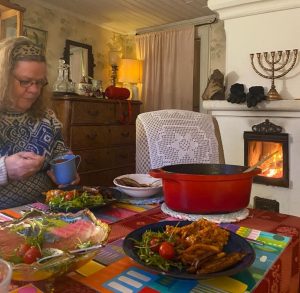
“I hope that one day ecological agriculture will be much more important than it is today,” insists Daniela. “And that there will be many more small farms. Because I think that’s the future. Because all the big mechanical companies can’t have WWOOFers. I think if you have more local production, you can have more WWOOFing.
Would it be interesting to generalise WWOOFing? In any case, the movement allows for a change in behaviour towards a more circular economy, and a respected biodiversity. Values in line with the Swedish government’s sustainability objectives.
At the end of the morning, the straw is spread all over the garden. The afternoon is free for a walk in the Swedish woods. As a WWOOFer, we share a meal with Birgit by the fire. The embers crackle. The candles are lit. The smell of tomato sauce and grilled tofu fills the room. And the discussion settles warmly into the moment. Another great day’s work.
